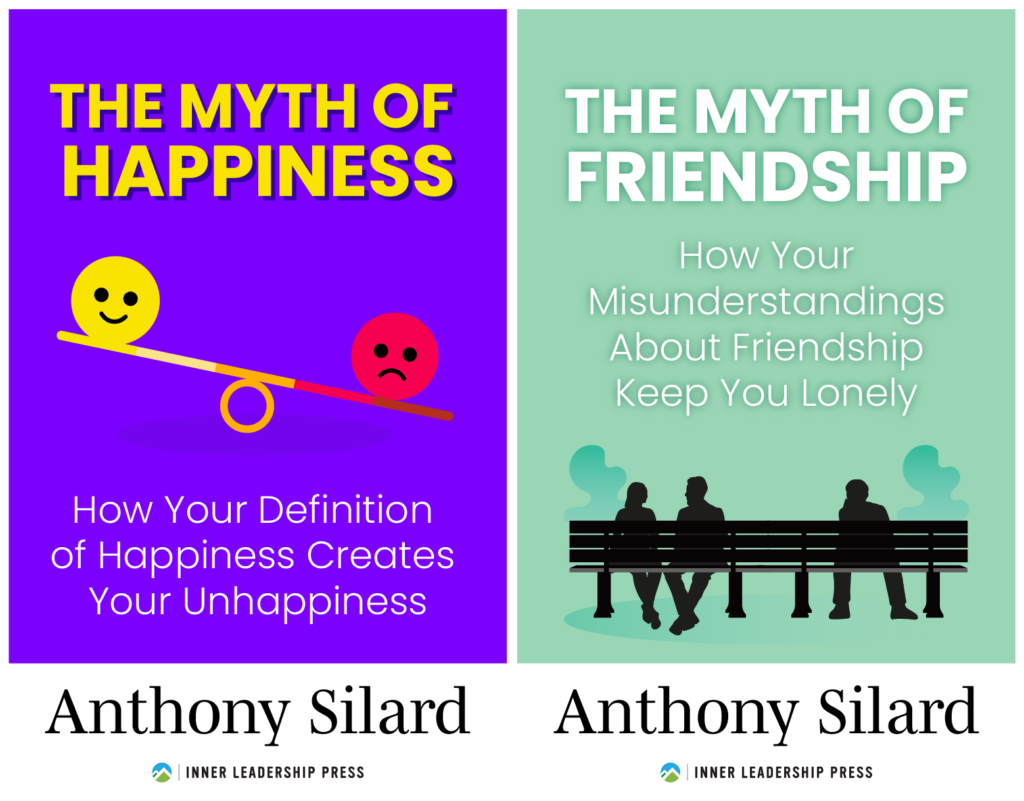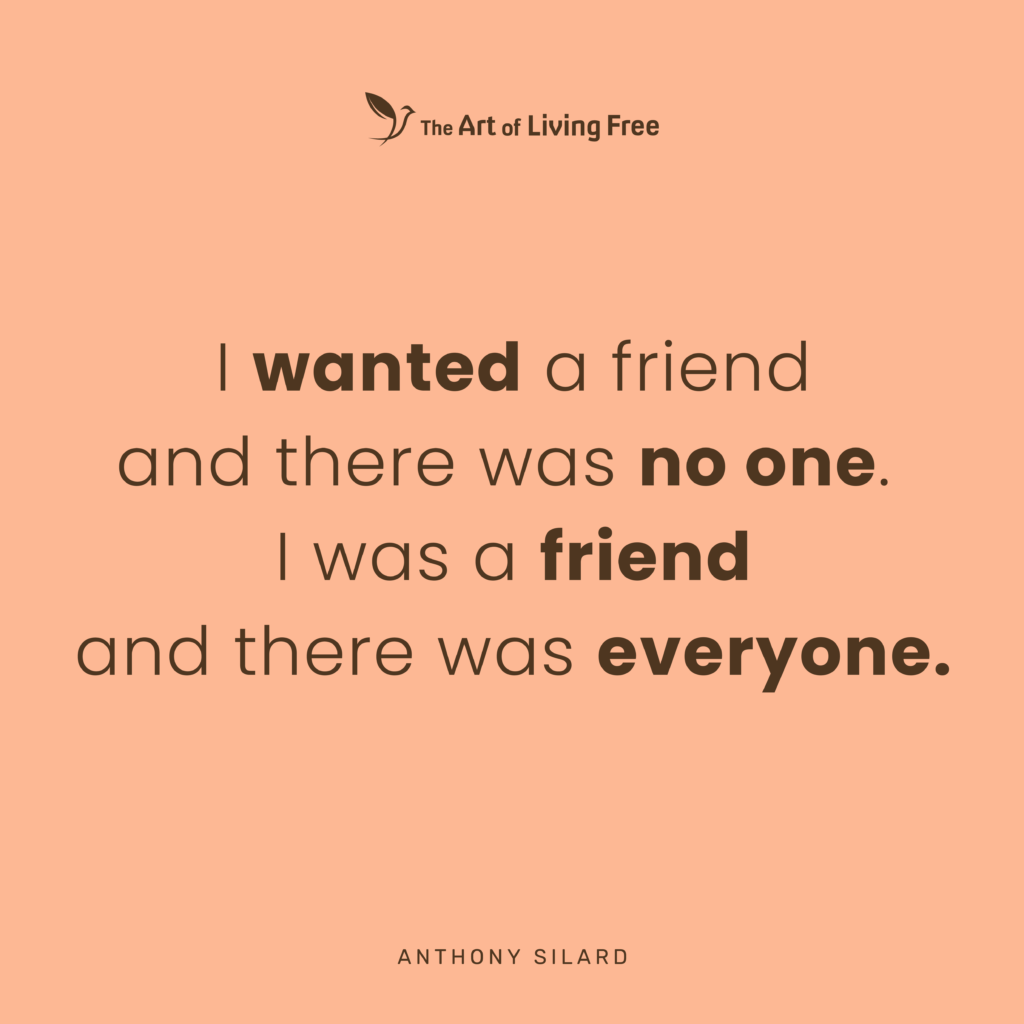How to Be Optimistic Despite Constant Negativity in the News
You can also read this article in Psychology Today here
Greetings from Kenya, where I just completed a leadership program for 125 highly motivated and brilliant rural school leaders!
I’m thrilled to offer you two powerful resources that can help transform your
life and relationships: The Myth of Happiness: How Your Definition
of Happiness Creates Your Unhappiness and The Myth of Friendship: How Your Misunderstandings About Friendship Keep You Lonely—and I’m giving them to you
for FREE as part of The Art of Living Free community!

These books will soon be available to all subscribers, and I’ll be sending you the download link in the next month. Stay tuned!
Why Should You Read These Books?
In a world where we’re often told what happiness and friendship should look like, these books offer a fresh perspective. You’ll learn:
· How your current definition of happiness might be contributing to your unhappiness.
· Why some common misconceptions about friendships leave us feeling isolated, and how to foster more meaningful connections.
· Simple, actionable strategies that can lead to real improvement in your happiness and relationships.
Share the Joy
I encourage you to dive into these books and, of course, share them with your friends and family. Together, we can create a ripple effect of positive change—more joy, more connection, and less loneliness in our world.
Thank you for being part of The Art of Living Free. I can’t wait to hear how these resources impact your life.
Stay tuned for the links, and let’s start building a community of happier, more connected people.
– – – – –
“How can I stay optimistic despite the torrential digital downpour of negative news 24-7?” many people ask me. Let’s consider how we become pessimistic while reading the news.
If It Bleeds, It Leads
First, the negative orientation of the news really hasn’t changed over the years. If anything, it’s become more negative. Why? Vitriol and incivility are the most significantly rewarded messages on social media.

A University of Winnipeg study that analyzed every single Tweet posted by US members of congress between 2009 and 2019, for instance, found that when they express more negative incivility toward others on social media, they receive more “Likes” and “Retweets” than when they post positive comments lauding their followers.
Supporting this finding, a New York University study that analyzed over 2.7 million Facebook and Twitter posts found that negative, hostile messages are twice as frequently shared or retweeted than positive or neutral messages.
While the if-it-bleeds-it-leads content of the news is arguably worse or, at best, hasn’t changed, the frequency with which we read the news has.
Why? We now access the news 24-7 from our devices, continually filling ourselves with foreboding and dread. The news—whether in television, print, or online form (name your poison)—is one long doom scroll.
A Toxic Cocktail: Addiction to (Negative) News
If you haven’t guessed by now, this combination of highly negative news stories and more frequent perusal of such stories do not coalesce into a heartwarming, glowing influence on your long-term well-being. What, then, can you do in these times?
First, remind yourself of these two truths:
- These times are challenging and uncertain.
- All times are challenging and uncertain.

Second, question how you are interpreting the news vis-à-vis your inexorably repetitive sips from the digital trough. Research by Harvard psychologist Steven Pinker has found that life, in many ways, has never been better: despite some sensational mass shootings and the horrific wars in Israel/Palestine and Ukraine, there is less overall violence than there ever has been in our brief human history.
Build on Progress
Let’s consider how we’re doing in two important areas of how we emerge and are often perceived as individuals in our collective society: race and gender. While 25 percent of people of color in the US have been subjugated to a racist joke in their career, what percentage of people of color do you think were subjected to a racial insult a century ago in a single week of their career?
While there is still a gender pay gap in the US (women earn about 82 cents, on average, to every dollar earned by a man) there is evidence from a recent study by Stanford University economist Valentin Bolotnyy and Harvard economist Natalia Emanuel that this pay gap is erased among men and women without children—which, incidentally, is actually profoundly troubling, as it exhibits the low value our capitalistic society places on children.
There are other signs for gender-related optimism: the percentage of managers in the US who are women nearly doubled between 1990 and 2011, from a quarter (26.1 percent) to half (51.4 percent) of all managers. 40 percent of private businesses in China are now owned by women.
It doesn’t end there. For every two men graduating from university worldwide, there are now three women. Three in five master’s degrees are now conferred to women.
If Not You, Who?
It’s true that a lot is still left to be done. Yet it’s also true that a lot has already been done, and we can build on it.
Perhaps most importantly, what will your contribution be? Let’s all be optimism-leaning realists and garner enough hope to inspire us to do our part to create a better, healthier society for all of us who share this planet.
To your staying optimistic in these challenging times so we can all get through them together,
Anthony
– – – – –

If you desire more friends, instead of crying about how no one listens anymore, start listening.
Use your phone as …. a phone. Call the people you care about and let them know you are there for them.
Make the decision to transform your relationships by provide the people you love with both Quality Time and Quantity Time.
How do you take time out of your life to consider how you can develop more meaningful relationships with others?
If you have enjoyed this article, you can receive similar articles by Dr. Anthony Silard in your email inbox. Every two weeks, we send the latest issue of The Art of Living Free Newsletter to over 300,000 people in our global community. Please join us!



